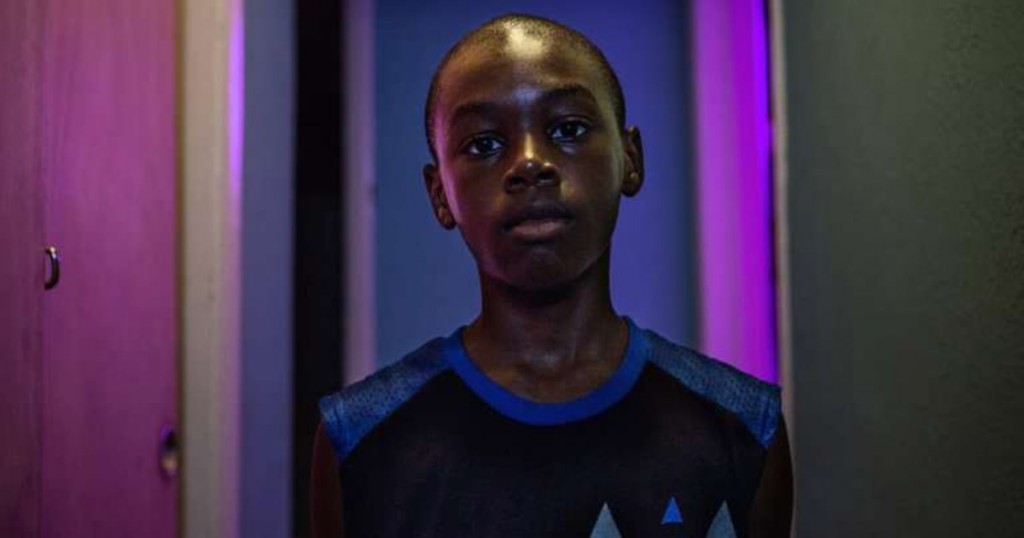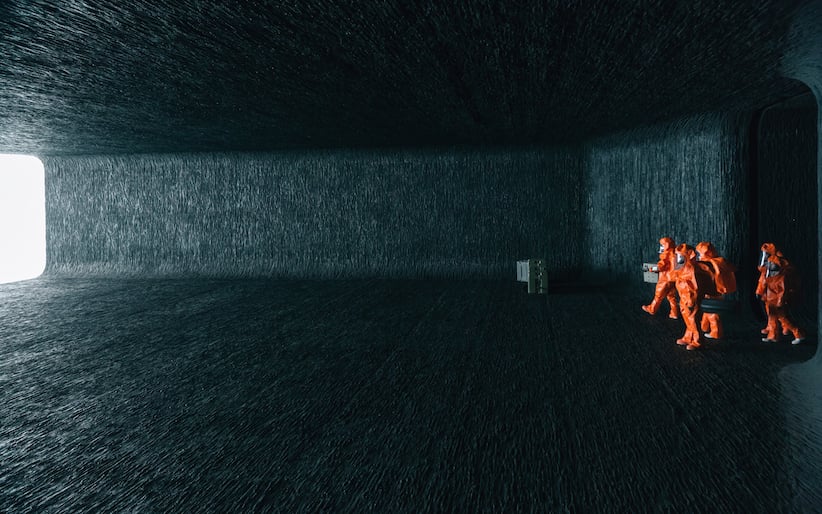Maclean’s picks the best movies of 2016
Our film critic Brian D. Johnson reveals what made his list as the finest movies of the year

Share

Every year, Maclean’s picks the best in arts and culture. To read more of our selections of what shone in music, television, movies, and books in 2016—as well as our annual Missed It List, capturing the items that went under the radar—go here.
For all the hand-wringing about the future of cinema, 2016 was an unusually rich year for film, with a diverse array of refreshingly original movies that pleased the crowd, the critics and often both. From Moonlight and Fire At Sea, some films managed to be both timely and timeless, framing social issues with a poetic eye. This list is drawn from films released in Toronto in 2016, and Oscar-qualifying films that will be released by the end of February—a total of 520 titles. No, I didn’t see them all, not by a long shot. But among those I did watch, here’s what lingers in the mind:
Moonlight. With a coming-of-age story set in a tough neighbourhood of Miami, writer-director Barry Jenkins gives us an American hero we haven’t seen before: a young black man who is gay and confused in a world where a drug dealer can also be a caring father-figure. Steering far from stereotypes, Jenkins brings ambitious themes of race, class and sexual identity down to an intimate scale. Portrayed by a trio of superb actors, the protagonist grows from child to teen to adult, three distinct characters who coalesce into one. With the lyrical undertow of something that feels at once dreamy and real, Moonlight illuminates places of the heart, from the home to the street. The way it lays America bare makes it the movie of the year.
MORE: Why Moonlight is fully deserving of its high-voltage buzz
Paterson. My sentimental favourite. No actor this year has given a purer performance than Adam Driver, who plays a bus-driving poet/poetry-writing bus driver. Lots of films can be called “poetic,” which is often a synonym for cinematic, but director Jim Jarmusch embodies the soul of poetry on film with a Zen-simple story as rare as Driver’s unadorned performance. With every line of dialogue, it’s hard to believe he’s not saying the words for the first time. Slyly, the film wends its way to casting a spell we don’t see coming, and puts us in a place we never want to leave.
Toni Erdmann. If ever a movie was made to be seen with an audience, it’s this strange and audacious comedy from German writer-director Maren Ade. A high-strung management consultant (Sandra Müller) is jolted out of her chilly comfort zone by her trickster father, who barges into her business circle as an overbearing imposter wearing a wig and buck teeth. Its running time of 2¾ hours sounds preposterous for a comedy. But this is a comedy of acute embarrassment, with hysterical payoff scenes that leave us wanting more, while Müller’s raw-nerve performance sustains the narrative tension.
La La Land. Calling Damien Chazelle’s gorgeous musical the feel-good movie of the year sells it short. Though bathed in affection for the song-and-dance magic of vintage Hollywood (and the candy-coloured reverie of French New Wave director Jacques Demy), it has a keen contemporary edge. As both a musical and romcom, La La Land subverts as many conventions as it fetishizes, while wrapping its love story around the frustration of two artists holding out for truth and beauty amid a showbiz world enslaved to money. The hot/cool chemistry of Emma Stone/Ryan Gosling strikes the perfect balance.

Arrival. Now that we all live in a Marvel universe, with our extraterrestrial imagination franchised by Star Wars, hats off to Quebec director Denis Villeneuve for giving us an alien invasion movie for grown-ups. He’s the real Rogue One. Not everyone loves this existential riddle, the kind of time-warped excursion into metaphysical space that critics like to call a “head-scratcher.” And as one of two scientists trying to communicate with the aliens, Jeremy Renner has to play sidekick as Amy Adams laps up all the oxygen in the spacecraft. But Villeneuve has created a distaff answer to Close Encounters of the Third Kind, a movie that soars into the deep space of emotion, with ingenious visuals and sound design that explore the very nature of communication, and cinema.
Manchester by the Sea. What’s remarkable about Kenneth Lonergan’s finely detailed drama of loss and grief in a working-class family is that it’s not as depressing as it sounds. The story spins between ordinary life and flashbacks to horrific tragedy, propelled by an overbearing score. But like a trusty sea captain, Casey Affleck weathers the storm with calibrated stoicism and a gyroscopic wit. As his teenage nephew, Lucas Hedges buoys up every scene he’s in. And in a compact but explosive role, Michelle Williams brings the whole movie to a standstill with one devastating scene.
Hell or High Water. On face value, it’s just another modern western, about three white guys with nothing to lose—a pair of bank-robbing brothers (one bad, one good) who cut a swath through Texas, while a crusty old sheriff closes in. But don’t be misled by the compressed gunplay of the trailer. This is a character piece, superbly acted by Chris Pine and Ben Foster as the brothers and Jeff Bridges as the sheriff. Brit director David Mackenzie carves nuance out of the wide-open spaces and fills the screen with silence in a portrait of an America knockin’ on heaven’s door.
Loving. Another film that finds quiet strength in understatement. Jeff Nichols directs Joel Edgerton and Ruth Nega as Richard and Mildred Loving, an interracial Virginia couple who fought a state law against miscegenation in the 1960s, and took their battle to be legally married all the way to the U.S. Supreme Court. For a story that hinges on a historic issue, Loving cleaves to the simple love story between Richard and Mildred, making us realize how rare it is to see a credible, uncompromised romance of any kind onscreen.
The Handmaiden. It’s quite the contraption—a sumptuous period film, brocaded with layers of erotic intrigue. Director Park Chan-wook transplants Sarah Waters’s Victorian-era bestseller to Japanese-occupied Korea in the 1930s. The action unfolds in a luxurious manor ruled by a depraved book collector, where a duplicitous handmaiden is hired to serve a Japanese heiress. A lesbian romance ensues, as a shape-shifting narrative swivels through multiple viewpoints. No matter how irresponsible the melodrama, The Handmaiden redeems its guilty pleasures with enthralling beauty and mischievous plot turns.
Fire At Sea. Directing the first documentary to win the top prize at the Berlin Film Festival in its 67-year history, Gianfranco Rosi composes a miniaturist portrait of a fishing village on the Italian island of Lampedusa and the African refugees who wash up on its shores. With exquisite cinematography and intimate scenes that would be at home in dramatic fiction, Fire At Sea gradually envelops the viewer in a microcosm of a global tragedy. Its contemplative style is far removed from that of the agit-prop documentary, but by magnifying small moments it brings home the magnitude of the refugee crisis with heartbreaking lucidity.
More personal favourites: The Salesman, 20th Century Women, Anatomy of Violence, The Witch, Mean Dreams, River, A Bigger Splash, Things to Come, Cameraperson, Konaline: Our Land Beautiful, Sully, Weiner, The Stairs.